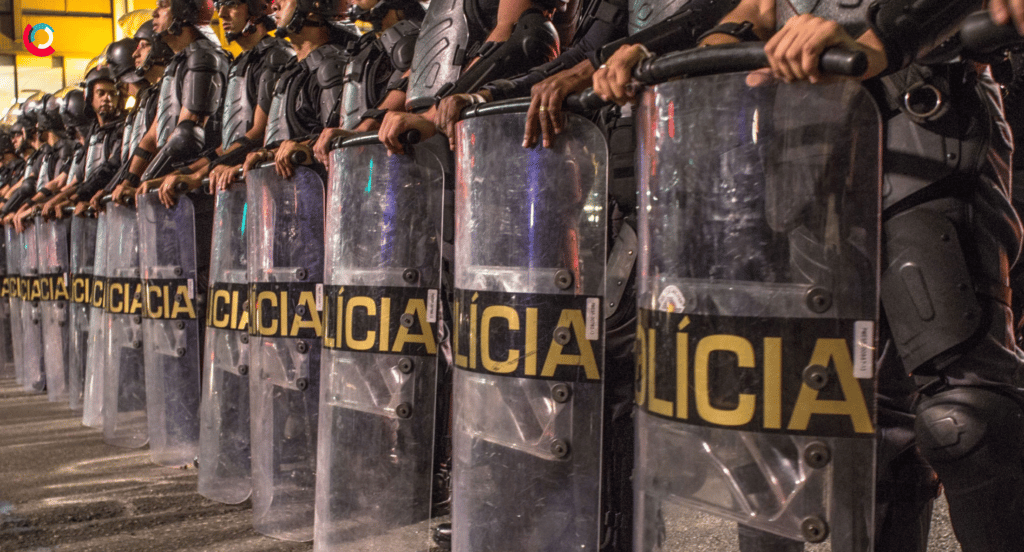By Paul Mutter
Introduction
On 8 January, thousands of supporters of former president Jair Bolsonaro stormed and trashed the Palácio do Planalto, National Congress and Supreme Federal Court (STF) in Brasília before security reinforcements from the military and neighbouring states’ police forces restored order and began arresting hundreds of rioters, who erroneously believed that the soldiers had come to support their uprising.
Since Bolsonaro’s narrow run-off election loss to Workers’ Party (PT) candidate Luiz Inácio Lula da Silva in October 2022, he refused to accept the defeat and encouraged his supporters to strike and rally nationwide to overturn the results.
Though Lula’s supporters feared an organised attempt to hold onto power by Bolsonaro, pressure from the international community as well as the open refusal of the military and National Congress leaders, including that of Bolsonaro’s allies, to countenance such an extrajudicial effort meant that no such attempt transpired. Lula was inaugurated without incident on New Year’s Day, his third term in office after previously being elected in 2002 and 2006.
The rioters had missed their moment, and this meant that Lula moved swiftly in conjunction with the courts to establish direct federal control over Brasília and give Justice Minister Flávio Dino the power to pursue the instigators and financiers of the uprising, both at home and abroad.
The other major difference was, despite recriminations and delays among US security agencies in failing to secure the Capitol, their constitutional loyalty was not seriously questioned by elected officials. Such concerns are much more apparent in Brazil, particularly with respect to the police, but also the armed forces, despite their demonstrated constitutional loyalty to date.
In Brazil, where a military dictatorship existed from 1964 to 1985, the question of loyalty is much more fraught and will continue to nag at elected leaders as they respond to the aftermath of the failed uprising.
Political-military divide remains
The response to the riot further demonstrates the distrust between elected leaders from rival parties and between the federal government and security services. Federal District Governor Ibaneis Rocha was suspended from his duties and Public Security Secretary Anderson Torres fired, later arrested, for their tepid response to the initial violence; both men are supporters of former president Bolsonaro and have denied any wrongdoing.
The latter’s arrest was prompted by the discovery of a draft document in his possession, written last year, that provided a legal framework for overturning the rulings of the Superior Electoral Court (TSE).
And while Defence Minister José Múcio remains in office, Army General Júlio César de Arruda has been dismissed in response to reports that the military delayed the clearing out of the Bolsonarista encampments in order to allow ex-soldiers and family members of active-duty service members to leave their main sit-in outside Army Headquarters in Brasília without being arrested.
While direct participation from the High Command of the Armed Forces in the acts of 8 January is unlikely to be proven, the new government will be extra wary amid the feeling of distrust as multiple members of security forces have been arrested or are being investigated for allegedly taking part in the incident.
For now, Lula and his administration have the advantage of widespread public disapproval over the storming of the capital. This has been further evidenced by nationwide pro-rule of law rallies held immediately after the riot, with tens of thousands of people participating, while calls for anti-Lula counter-protests and roadblocks quickly fizzled out.
However, polls also showed that 38 percent of voters fully or somewhat approved of the rioters’ actions and 29 percent believe Lula will be unable to govern after the clashes.
Although the former president may have catapulted the anti-PT and anti-left sentiment, many of those who still resist Lula’s presidency have already begun to dissociate their goals from the image of Bolsonaro, a sign that proves that the movement is more resilient than anticipated. With the National Congress run by Bolsonaro’s coalition, which holds 61 out of 81 seats in the Federal Senate and 341 out of 513 seats in the Chamber of Deputies, Lula cannot act unilaterally and will face new challenges in the weeks and months to come as the investigations continue.
Summary
The abortive storming of Brazil’s capital by supporters of former president Jair Bolsonaro and the questionable response of the security services presents President Luiz Inácio Lula da Silva with significant challenges going forward, as well as an opportunity to consolidate democratic institutions to prevent further destabilising incidents.
Paul Mutter is our US-based Head of Global Coverage.















